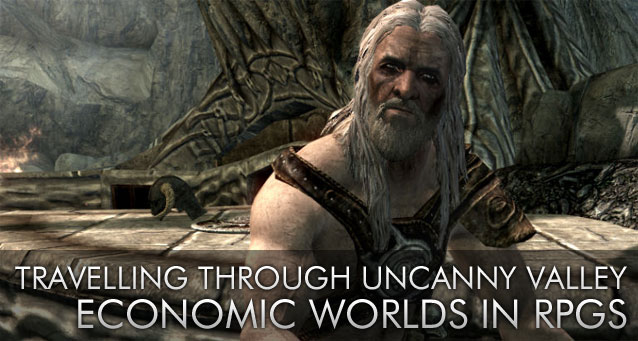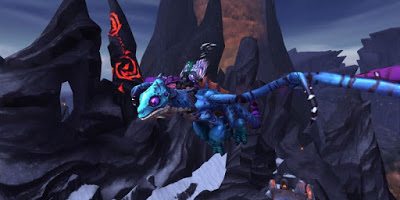


One the staples of modern day (more or less) open world RPGs is the simulation of everyday town business. People buzz about, being busy doing their every jobs. Blacksmiths do their smithing, butchers their butchering, guards their gardening.
But once the player stops and smells the roses, starting to pay more attention to these details, that oftentimes meticulously crafted ‘business cycle’ starts to show its artificial nature.
Case in point, the Witcher 2’s Flotsam is a really well designed little village and trading post. There’s a market square, complete with gallows, there’s several craftsmen in town who at day go about their work, while returning home at nightfall, leaving their shops unattended.
The problem—the realization of being smack dab in the middle of uncanny valley so to speak—arises when the player notices that nothing really ever happens here. The butcher keeps hacking away at the same dead hog, day in day out. While the blacksmith is always making things, he never sells to anyone but the player.
The same is true about nearly every open world game out there. While there are a lot of virtual people, who at this point in the tech cycle are all actually doing something, on closer inspection they never actually do anything. At least nowadays it needs a closer look. When Oblivion or Morrowind were around, blacksmiths and shopkeepers would never do anything at all besides lamenting to the inquisitive player that they were very busy. Doing nothing.
The Assassin’s Creed games feature unmatched numbers of large crowds. People carry goods from point A to point B. But don’t actually since they just spawn in the vicinity of the player as obstacles - since when the drop whatever they’re carrying thanks to the player bumping into them, the local guards will take notice. This is what those guys are there for.
Overall, this is not so much a problem per se, it’s just that in realizing that the game world mostly consists of glorified window dressing, it loses credibility. In Mass Effect 2, whenever walking past the Night Club on Omega, the same line of people would be standing in front, arguing with the bouncer. “Come on, let me in!” the first guy in the line would say. Every time the player passes. No matter how many days, nights, sleeping cycles or whatever passed.
Would implementation of such a system hard to pull off in a modern game?While having these crowds and apparently busy craftsmen about helps a lot in making a game world seem more lively and for lack of a better word ‘realistic’, this still is just a step in a longer march. Especially when it comes to open world games of the magnitude of Skyrim, I keep wondering why there can’t be a a more integrated economy. I keep remembering the old days of Wing Commander Privateer, where goods could be bought at one end of the galaxy and sold somewhere else—for a good price if demand was up. Would implementation of such a system hard to pull off in a modern game?
Let’s spin this thought a bit further. With a fully integrated economy, there could be actually meaningful sidequests. Sidequests where clearing an important mine of monsters would mean a drop in metal good prices in the region. Where the player could ambush a trade caravan—conducting a form of medieval fantasy corporate warfare—to benefit a competing trader. Those sidequests could be much more organic and emerging from an influencable system within the game world, rather than randomly generated “go there, do that” quests that have no influence on the game world at all.
There would be a true gameplay merit coming from handling things this way. Then again, it’s easy for me as an game design outsider to want these things which probably are a nightmare to implement and bugfix. Though having a bug that leads to a drought in The Rift of Skyrim and the resulting consequences for a dynamic game world might be quite interesting to tackle.




 World of Warcraft - flying in Draenor (patch 6.2) tips
World of Warcraft - flying in Draenor (patch 6.2) tips Just Cause 3 - How to Get the Rubber Ducky Boat
Just Cause 3 - How to Get the Rubber Ducky Boat Google Maps Will Fail You; Here Are 5 Skills That Can Save You
Google Maps Will Fail You; Here Are 5 Skills That Can Save You How to Instantly Switch Any Keyboard's Layout Wherever You Go
How to Instantly Switch Any Keyboard's Layout Wherever You Go The Sims 4: New Update brings items for Valentines Day
The Sims 4: New Update brings items for Valentines Day